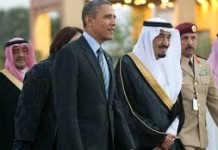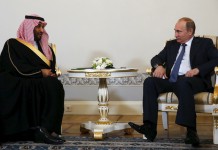Context
 The supply route for NATO forces in Afghanistan, passing through Khyber Pass and border town of Torkham, remains closed. Two increasingly reluctant countries of the Afghan coalition and NATO, France and Germany, are on an alert for possible Mumbai style terror events. The attackers are reported to have trained in FATA. However, on October 6th came the word of Afghan peace talks, which are well underway, and the associated debate about the key positions of various stakeholders. This article looks at pressures of the end game in Afghanistan. The outcome of the present US and Pakistan showdown will determine who has the upper hand at this stage.
The supply route for NATO forces in Afghanistan, passing through Khyber Pass and border town of Torkham, remains closed. Two increasingly reluctant countries of the Afghan coalition and NATO, France and Germany, are on an alert for possible Mumbai style terror events. The attackers are reported to have trained in FATA. However, on October 6th came the word of Afghan peace talks, which are well underway, and the associated debate about the key positions of various stakeholders. This article looks at pressures of the end game in Afghanistan. The outcome of the present US and Pakistan showdown will determine who has the upper hand at this stage.
Analysis
 Only a week ago news media was reporting that Afghan Taliban remain unwilling to negotiate until and unless coalition forces give a date of their withdrawal from Afghanistan. Nonetheless, now the same media sources are presenting a different perspective that senior Taliban are eager to initiate the peace talks, under pressure of being left out. The information and psychological warfare have become a critical component of the larger strategy at this juncture of the Afghan war.
Only a week ago news media was reporting that Afghan Taliban remain unwilling to negotiate until and unless coalition forces give a date of their withdrawal from Afghanistan. Nonetheless, now the same media sources are presenting a different perspective that senior Taliban are eager to initiate the peace talks, under pressure of being left out. The information and psychological warfare have become a critical component of the larger strategy at this juncture of the Afghan war.
Following are the key positions of the main parties involved in the Afghan conflict:
US and Pakistan Leverages
Pakistan has suffered immensely from the recent devastating floods, which has gravely impacted its economic outlook. At the same time, economically distressed Pakistan is under tremendous pressure to reevaluate its position as it relates to Afghan Taliban, especially the Haqqani network. US believes the Haqqanis are extremely radical in their orientation and too close to Al Qaeda, to be part of any reconciliation. The cross border incursions by coalition forces thus serve as a pressure tactic on the country, to reconsider its position. The underlying message is; if Pakistan does not change its position and act in North Waziristan, the number of cross-border incursions in FATA could increase.
The tactical escalation would range from drone attacks to hot pursuit and ground troops. Such a strategy is meant to put pressure on Pakistan, which can in turn shift to Afghan Taliban, to change their hard line positions and be more amenable to peace talks and settlement.
On the other hand, through closing of NATO supply route, Pakistan is demonstrating the advantages it holds. No doubt, longer the supply route remains closed, and if the attacks on the fuel containers spread in Pakistan, the US operations in Kandahar (Dragon Strike) and other places would be impeded. The Chaman border crossing has remained opened for NATO supplies, however, if relations were to deteriorate further, it could also face closure. Pakistan’s help is also essential in negotiating peace with different Pushtun factions taking part in the Afghan conflict.
There are indications that US is beginning to show receptiveness to Pakistan’s interests. The Guardian newspaper reported on October 6th that US has been in contact with Haqqanis via intermediaries. Furthermore, the US apology offered to Pakistan over the helicopter incident in Kurram Agency, demonstrates there is a willingness to calm the waters for the time being.
Based on media analysis, PoliTact believes US has started to prepare counter leverages that would threaten Pakistan’s military aid. The US is unlikely to touch the civilian economic aid, as it would only increase its negative perception in Pakistan. This also implies the country will continue to back the civilian leadership in Pakistan. At the upcoming strategic dialogue between US and Pakistan on October 22, the economic leverage US holds over Pakistan would increasingly come in to play. In the post floods economic environment, this dynamics will only exasperate the civilian-military relations in Pakistan. To counter US economic leverage, Pakistan will in all likelihood depend on its traditional allies, China and Saudi Arabia.
These events represent the beginning of the first phase of political approach to the Afghan conflict and many hurdles are yet to come. If Pakistan emerges stronger as a result of the Afghan conflict, it would also enhance China’s role in the region, and this is where the prospect of long-term US-Pakistan strategic partnership weakens.



